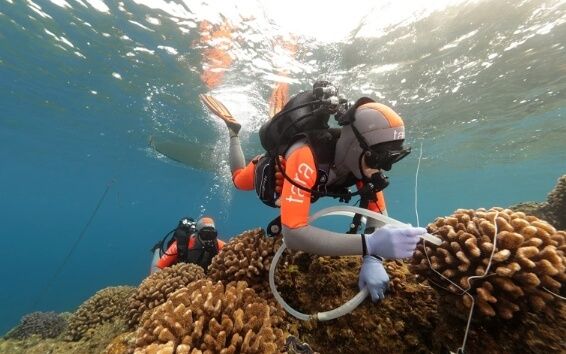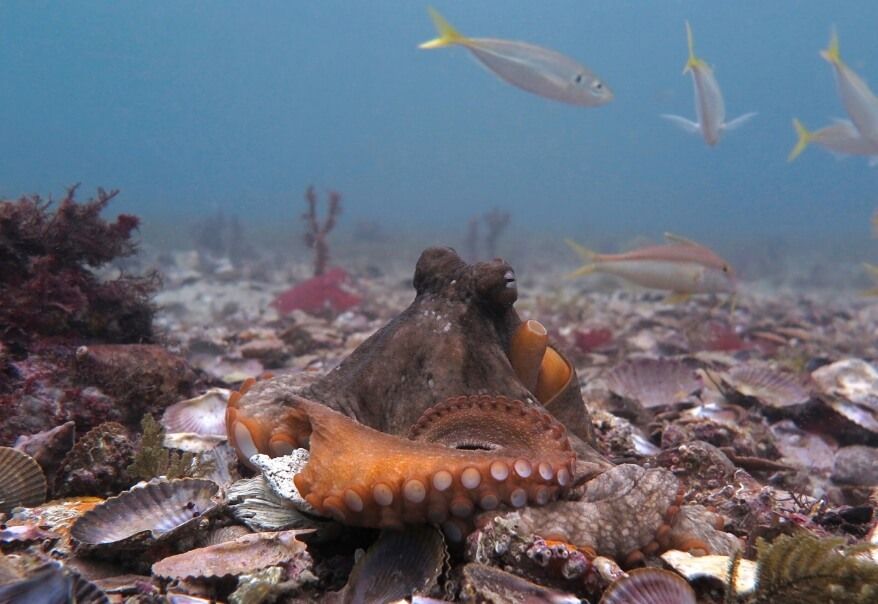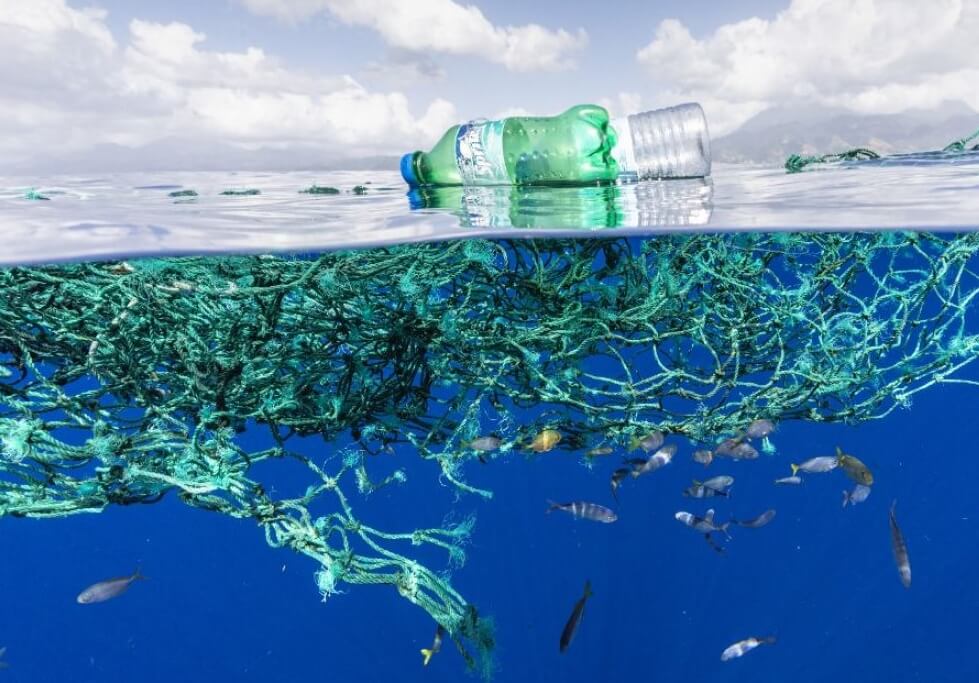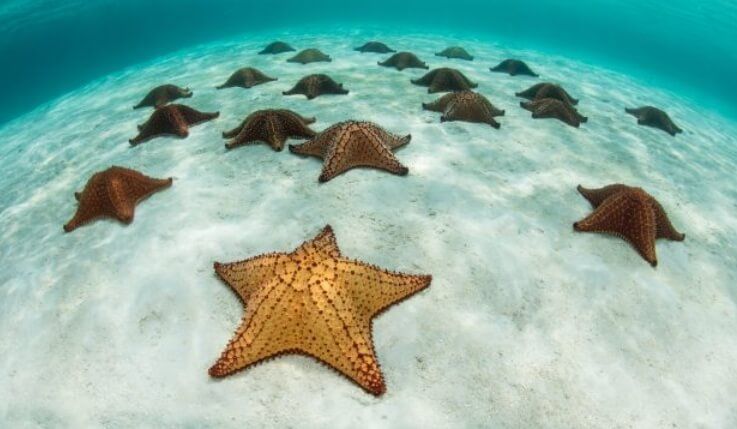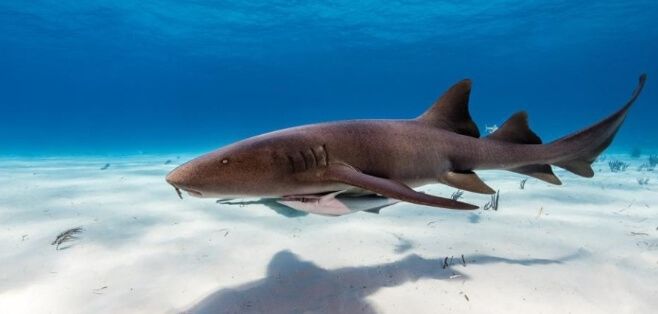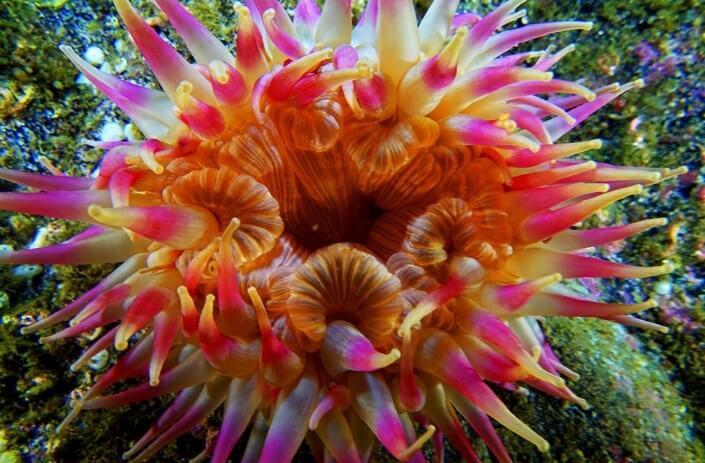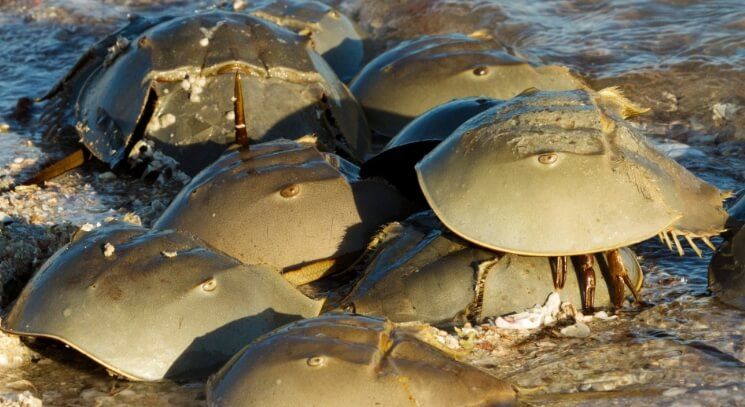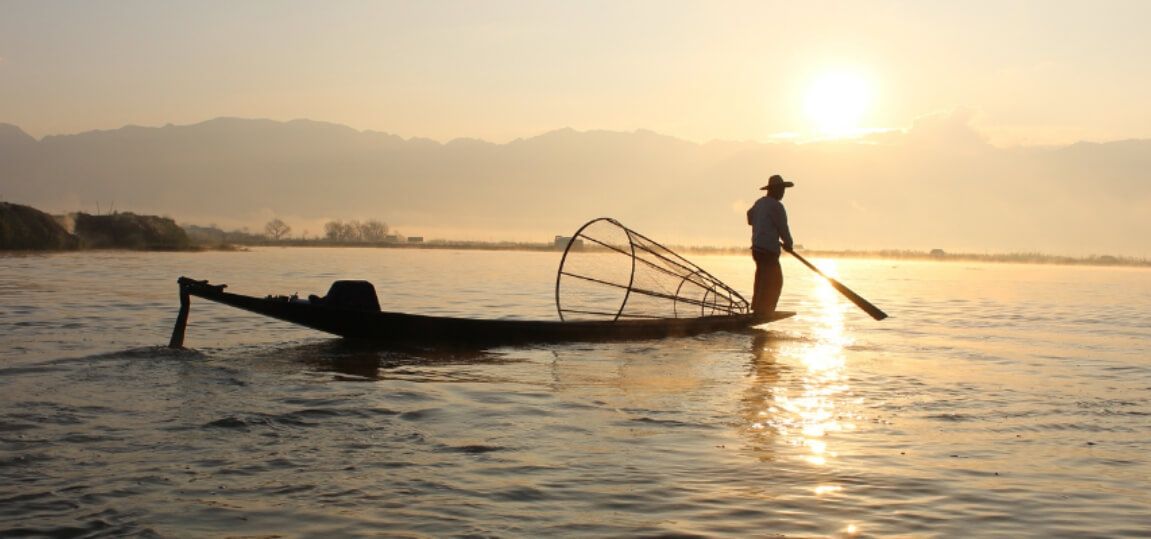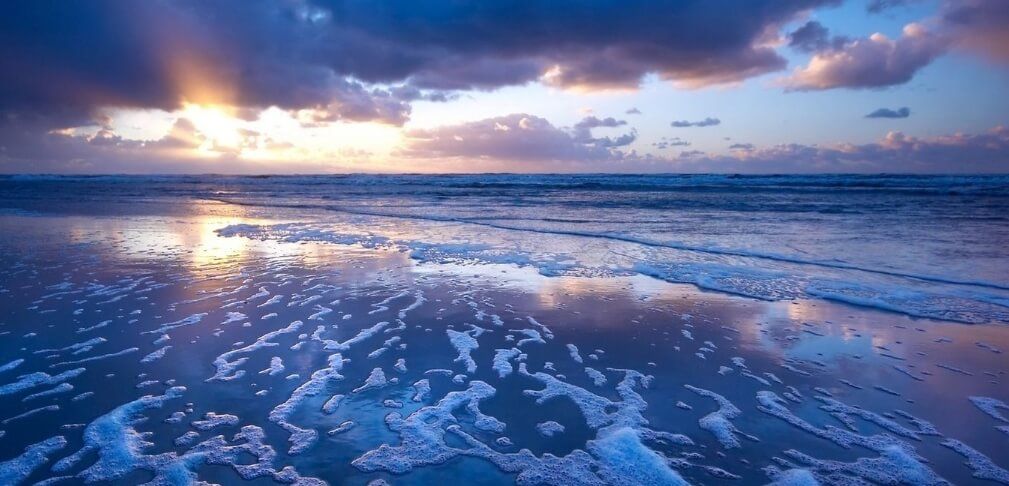

-
Tiger Anemone Discovered in Singapore Confirmed as New Species after a Decade of Research
Hidden amidst the sands of Changi’s shoreline, a sea anemone bearing a resemblance to a light-colored strawberry has recently been recognized as a novel species by local researchers. Unveiling the Mysteries of the Tiger Anemone Dubbed the “tiger anemone” due to its distinctive striping and its aptitude to consume prey larger than its size, the…
-
Exploration Team Ventures into South Australia to Observe Giant Cuttlefish Mating Season
A Breathtaking Natural Event Witnessed by Researchers Andi Cross & Janine Barker Having lived in Australia for five years and immersed myself in its oceanic environment, it was inevitable that I would hear stories about South Australia. Splitting opinions, half the people I engaged with were captivated by this oceanic realm, while the other half…
-
Study Suggests Climate Breakdown is Altering the Color of World’s Oceans
New research suggests that Earth’s oceans are experiencing a shift in color, and climate breakdown is likely the driving force behind this phenomenon. The once deep blue sea is gradually transforming into a greener hue, particularly in low latitude regions near the equator. The Significance of Ocean Color “The significance of this issue lies not…
-
Exploratory Expedition Reveals Remarkable Microbial Diversity Within Coral Reefs
Unprecedented Exploration Covers 100,000 Kilometers, Collecting 58,000 Samples from 249 Locations in Indonesia, Japan, and Papua New Guinea Recent findings from the Tara Pacific expedition, the largest-ever survey of Pacific Ocean corals, have challenged previous assumptions about the extent of genetic diversity within coral reefs worldwide. Conducted over a two-year period, the expedition aboard the…
-
Peter Harrison: “Coral reefs are crucial for the survival of approximately 1 million different species”
Peter Harrison is a marine biologist who founded the Marine Ecology Research Center at Southern Cross University in Australia. Since the early 1980s, he has been studying corals to find solutions for saving coral reefs, which are suffering from the effects of climate change and rising ocean temperatures. Peter Harrison’s innovative approach involves rearing coral…
-
What is the number and weight of plastic particles floating in the world’s oceans?
A study conducted by various institutes and universities has revealed that the amount of plastic in the ocean has exploded since 2005. In this new study, scientists have provided an estimate of the number and weight of plastic particles that are currently floating in the oceans. Studying 40 years of data Having accurate information on…
-
Climate change threatens to make starfish extinct with serious ecological consequences.
Climate projections for the future of the oceans cast many doubts on the survival of starfish, which are among the most important echinoderms capable of mitigating the ecological effects of other species. Within just eighty years, our seas and oceans risk losing some of the most famous and beautiful marine species that exist due to…
-
How to save a whale
The ocean is famous for its endlessness and its calm. And yet sometimes everything happens at once. Thousands of dolphins appear around the ship and race past the bow back down. “I want one for a pet!” calls a boy on deck. In the background, a freighter moves lazily through the channel in front of…
-
They Walk on Fins and Stand on Their Heads: Fascinating Feeding Behavior of Nurse Sharks Captured on Film
For millions of years, sharks have been prowling the world’s oceans, reigning as powerful and ancient creatures. Traditionally, these magnificent beings move solely up and down the water column. However, some have developed a unique skill – walking on the ocean floor using their pectoral and pelvic fins. Although this walking behavior may seem unusual,…
-
Warming in California Leads to Alarming Decline in Invertebrate Populations
A concerning phenomenon known as “The Drop” occurred off the coast of California around 8 years ago, bringing about a prolonged period of abnormal warm water. This unusual heat wave, which lasted for two years, has left lasting impacts on the marine ecosystems in the region. Researchers from the University of California have extensively studied…
-
Scientists Unravel the Vision of Horseshoe Crabs: Seeing Through Their Shells
Horseshoe crabs, ancient living fossils that have remained relatively unchanged for millions of years, possess intriguing features that set them apart from other creatures. One of their most fascinating attributes is their eyes, which protrude from the outer surface of their large carapace while the rest of their bodies remain concealed within. A recent scientific…
-
Spanish aquaculture is the flagship in Europe
Spanish aquaculture maintains its leadership in Europe. Behind this milestone is a centuries-old tradition, avant-garde companies committed to protecting the environment and fruitful research work. The turnover of fisheries, exceeding 500 million euros per year, strengthens the leadership of Spanish aquaculture as a key activity for future food security. 27% of all European aquaculture production…
-
France and Spain Take Bold Steps to Protect their Waters
In France, a “reserve of sea waves” is created to preserve the unique marine environment of Brittany. Local surfers initiated the establishment of this marine reserve to protect the physical structure and integrity of the waves in the region. The reserve status prohibits any activities that could alter the marine environment, such as building dams,…
-
China Launches Blue Sea 2022 Marine Ecology Campaign
China has taken a significant step towards preserving its marine ecosystems and safeguarding its natural resources with the launch of the “Blue Sea 2022” campaign. This special law enforcement initiative aims to strengthen marine ecology and regulate the development and use of natural resources in the country’s coastal regions. The campaign is a joint effort…
Search
Popular Posts
-
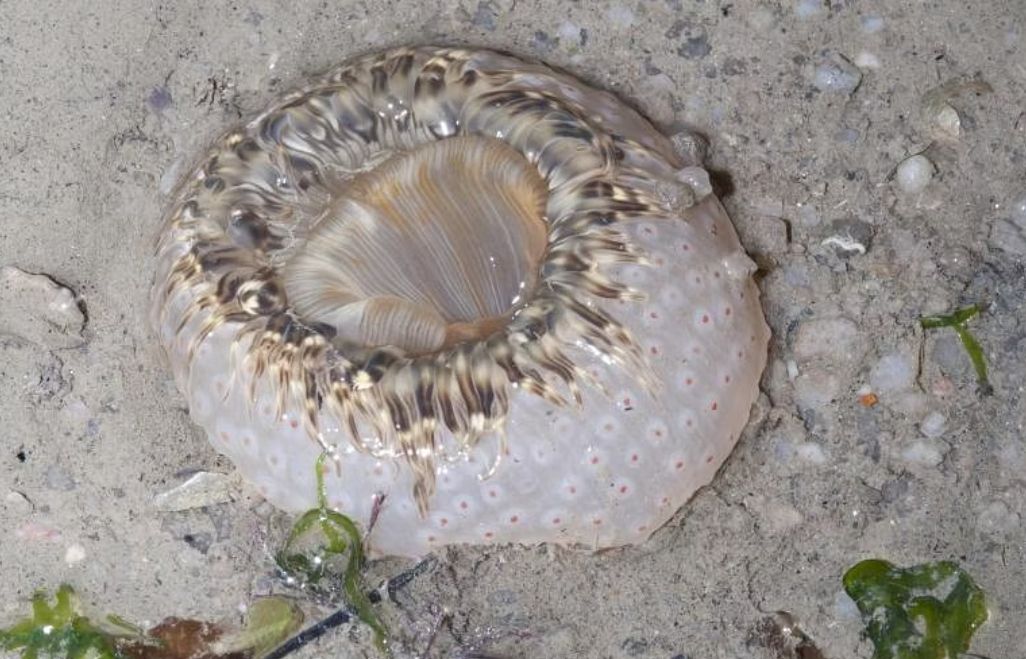
Tiger Anemone Discovered in Singapore Confirmed as New Species after a Decade of Research
Hidden amidst the sands of Changi’s shoreline, a sea anemone bearing a resemblance to a light-colored strawberry has recently been recognized as a novel species by local researchers. Unveiling the Mysteries of the Tiger Anemone Dubbed the “tiger anemone” due to its distinctive striping and its aptitude to consume prey larger than its size, the… READ MORE >>>>
-
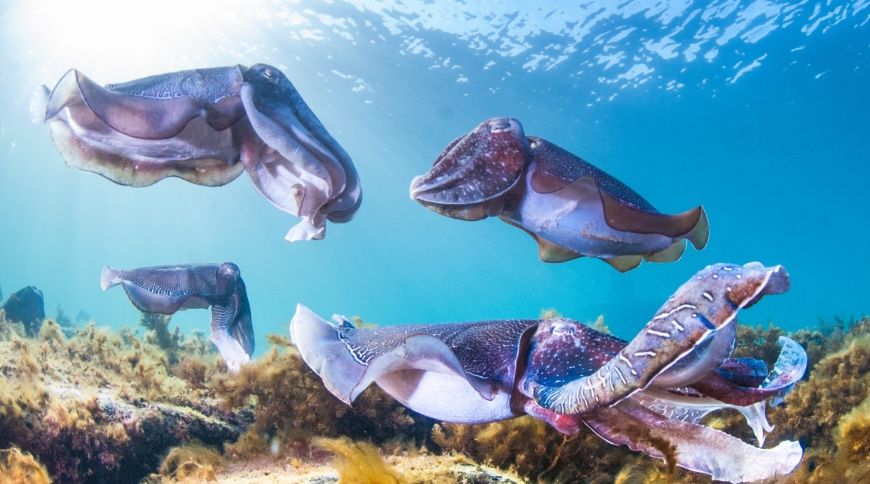
Exploration Team Ventures into South Australia to Observe Giant Cuttlefish Mating Season
A Breathtaking Natural Event Witnessed by Researchers Andi Cross & Janine Barker Having lived in Australia for five years and immersed myself in its oceanic environment, it was inevitable that I would hear stories about South Australia. Splitting opinions, half the people I engaged with were captivated by this oceanic realm, while the other half… READ MORE >>>>
-
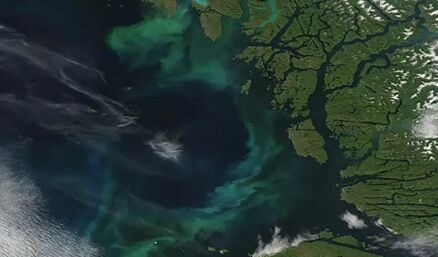
Study Suggests Climate Breakdown is Altering the Color of World’s Oceans
New research suggests that Earth’s oceans are experiencing a shift in color, and climate breakdown is likely the driving force behind this phenomenon. The once deep blue sea is gradually transforming into a greener hue, particularly in low latitude regions near the equator. The Significance of Ocean Color “The significance of this issue lies not… READ MORE >>>>
Categories
Archives
Tags
Acoustic Telemetry (1) Ancient Marine Arthropods (1) Antarctic Krill (1) Aquaculture (2) Artificial Insemination (1) Australia (6) Bamboo White-Spotted Sharks (1) Beach Culture (1) Bioplastic (1) Bryozoans (1) Channel and Atlantic Coasts (1) Climate Change (5) Climate Change Impact (1) Conservation (6) Coogee Island Challenge (1) Coral Bleaching (1) Coral Reefs (2) Culture (1) Ecological Imbalance (1) Endangered Species (2) Environmental Advocacy (2) Environmental Research (1) Eurypterids (1) Fatal Shark Attack (1) Fisheries (2) Fisheries Management (1) Fishing Moratorium (1) Fish Tagging (1) Food Supplies (1) Fossil (1) Global Warming (3) Global Warming Effects (1) Global Warming Impacts (1) Great Barrier Reef (1) Great White Shark (1) Hibbertopterus lamsdelli (1) Human Food Supply (1) Industrial Fishing (1) International Maritime Organization (1) Invasive Species (2) Island (1) Little Bay Beach (1) Lobster Tracking (1) Macroalgae (1) Malabar Beach (1) Marine Biodiversity (4) Marine Biology (3) Marine Conservation (3) Marine Ecology (9) Marine Ecosystem (3) Marine Ecosystems (3) Marine Environment (1) Marine Life (8) Marine Pollution (1) Marine Renewable Energy (1) Marine Wildlife (2) Microorganisms (1) Microplastics (2) Moon Phase (1) New Mexico (1) Northern Territory (1) Nurdles (1) Ocean Conservation (3) Ocean Health (1) Oceans (1) Paleontologists (1) Pelagic Environment (1) Phytoplankton (2) Plastic Resin (1) Pollution (1) Public Education (1) Public Perception (1) Quarantine (1) Rat (1) Scientific Conference (1) Seabed Mining (1) Sea Life Sydney Aquarium (1) Sea Scorpion (1) Seaweed (1) Shark Attack (2) Shark Attacks (3) Shark Behavior (1) Shark Bite Prevention (1) Shark Breeding (1) Shark Control Programs (1) Shark Cull (1) Shark Culling (1) Shark Nets (4) Shark Safety (1) Shark Shields (1) Southern Ocean (1) Spain (2) Sustainable Practices (1) Swimmer (1) Sydney (1) Threatened Species (1) Threats to Ecosystems (1) Ulva (1) Watersipora Subatra (1) Western Australia (1)

